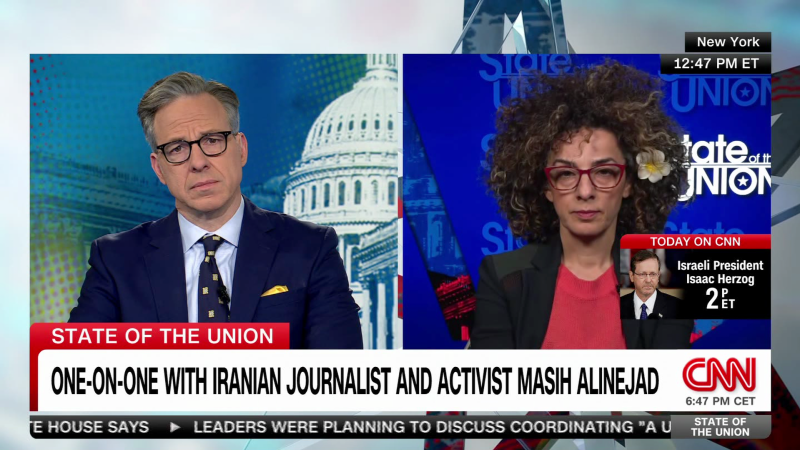In a recent interview with CNN’s Jake Tapper, Iranian journalist and activist Masih Alinejad emphasized the significance of Iran’s attack on Israel as a potential tipping point for democratic countries around the world. Alinejad expressed the belief that the attack marked the end of proxy wars, which have been a long-standing issue in the Middle East. She called for a unified response from democratic nations in support of Israel and against Iranian aggression. Alinejad’s comments shed light on the complex dynamics at play in the region and the broader implications of Iran’s actions for global security.
Alinejad’s perspective on the end of proxy wars in the region reflects a growing sentiment among observers that traditional modes of conflict are evolving in an increasingly interconnected world. The use of proxies by state actors to wage war by proxy has been a common tactic in the Middle East, but Iran’s direct attack on Israel represents a departure from this pattern. Alinejad’s call for democratic countries to respond collectively to this shift underscores the need for a coordinated and principled approach to addressing emerging threats in the region. The implications of Iran’s actions go beyond the immediate conflict with Israel and raise broader questions about the future of geo-political dynamics in the Middle East.
The attack on Israel by Iran has raised concerns about the potential for further escalation and instability in the region. Alinejad’s warning that this could be a tipping point for democratic countries highlights the urgency of the situation and the need for a unified response to Iranian aggression. As tensions continue to rise, the international community must carefully consider their next steps in order to prevent a wider conflict from erupting. Alinejad’s insights offer valuable perspective on the evolving dynamics in the region and the challenges facing democratic nations in responding to emerging threats.
Iran’s attack on Israel represents a significant escalation in the long-standing conflict between the two countries. Alinejad’s comments underscore the need for democratic nations to stand together in defense of Israel and to push back against Iranian aggression. The attack has profound implications for regional stability and the broader security landscape in the Middle East. As the situation continues to unfold, it is crucial for the international community to remain vigilant and to pursue diplomatic solutions to prevent further escalation. Alinejad’s message serves as a poignant reminder of the importance of unity and resolve in the face of growing threats.
The end of proxy wars in the region may signal a shift towards more direct and open conflicts between state actors. The attack on Israel by Iran represents a bold and provocative move that could have far-reaching consequences for the region. Alinejad’s call for democratic countries to respond decisively underscores the need for a strong and principled stance against Iranian aggression. In the midst of rising tensions, it is essential for the international community to work together to prevent further escalation and to promote stability in the region. Alinejad’s insights offer a compelling perspective on the evolving dynamics in the Middle East and the challenges facing democratic nations in responding to emerging threats.
In conclusion, Iran’s attack on Israel has the potential to be a game-changer in the region and a wake-up call for democratic countries around the world. Alinejad’s warning that this could be the end of proxy wars highlights the need for a unified response to emerging threats. The international community must consider the broader implications of Iran’s actions and work together to prevent further escalation. Alinejad’s perspective on the evolving dynamics in the Middle East offers valuable insights for policymakers and observers alike as they navigate the complex and rapidly changing security landscape in the region.













